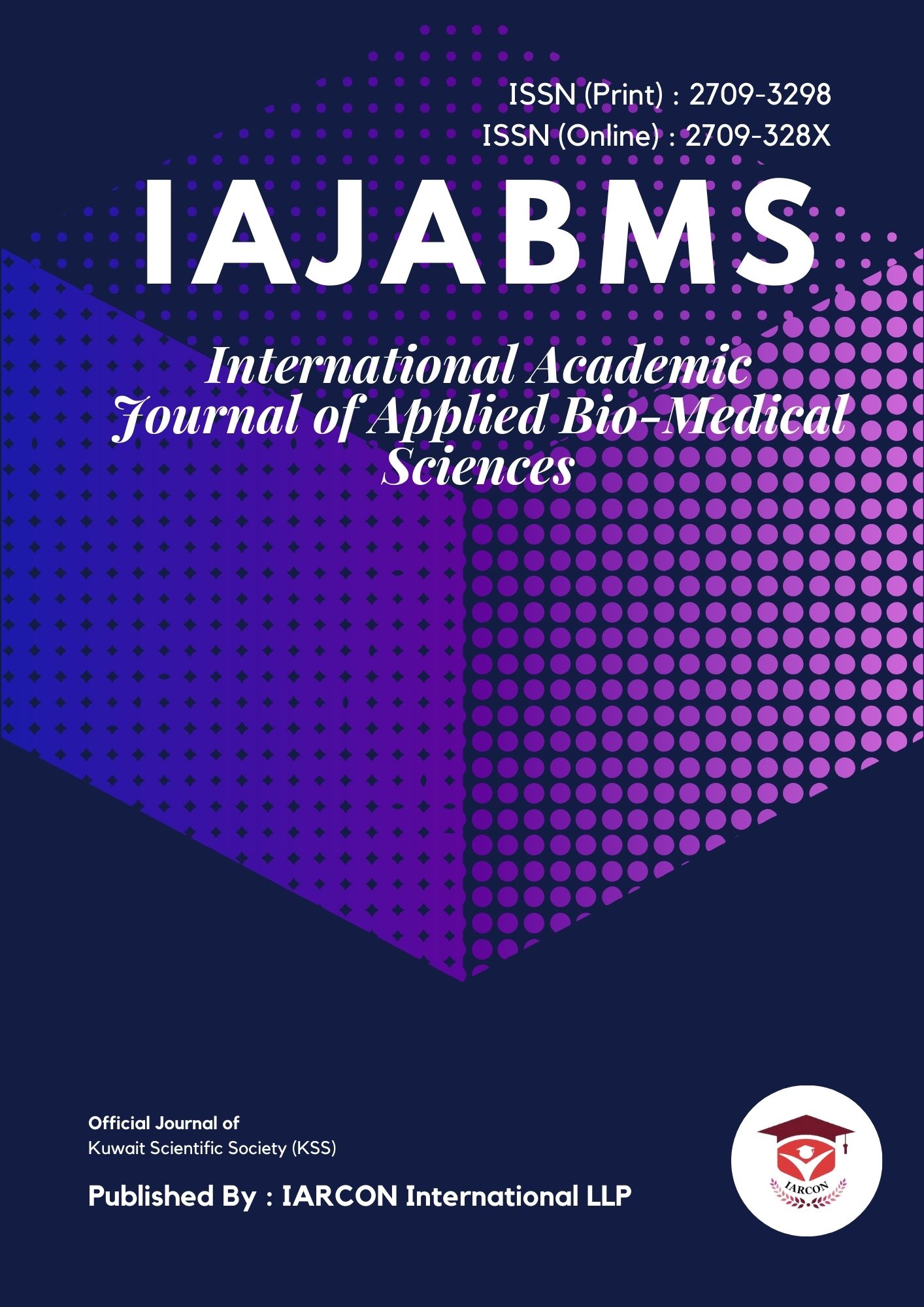Phenotypic and genotypic detection of biocides resistance in P. aeruginosa isolated from burns and evaluation the inhibitory effect of organic acids.
Background: Biocides resistance is one of the global health challenges and the potential of cross-resistance to certain antibiotics, which can lead to hospital-acquired infections and inefficient therapies. Overexpression of efflux systems is one of the important mechanisms of biocides resistance. Materials and Methods: 11 out of 20 isolates of P. aeruginosa subjected to biocides susceptibility test by disk diffusion test, then all 20 isolates tested for evaluation efflux activity by Ethidium bromide cartwheel method, then efflux pumps genes detected by PCR, after that antimicrobial activity of organic acid was investigated by well diffusion method. Results: 11 bacterial isolates which tested against 12 biocides revealed that Pvidone-iodine10% and Climate disinfectant shown (81.82%) reistance, while Povidone-scrub7.5% and spray disinfectant (90.91%). the best biocides is Surgical soap (0%) resistance, the rest of biocides revealed (100%) resistance. Our phenotypic estimation shown that all 20 (100%) isolates revealed efflux pump activity, 14 (70%) positive and 6 (30%) intermediates. Our genotypic results shown that 19 (95%) of isolates have mexB gene, while the qacE Δ1 was observed in all isolates (100%) and none of the isolates (0%) harboured the qacE. the results of organic acid against two isolates revealed that acetic acid and lactic acid have effective antimicrobial activity at a concentration 1.2% and 0.73% respectively, while citric acid, ascorbic acid and sorbic acid revealed antimicrobial activity against one isolate at concentration 0.24%. Conclusions: the prevalence of efflux pump system and its relation to biocides resistance, and can be used organic acid as safer, eco-friendly antiseptics and disinfectants to eradicate biocides resistance P. aerugiosa.

